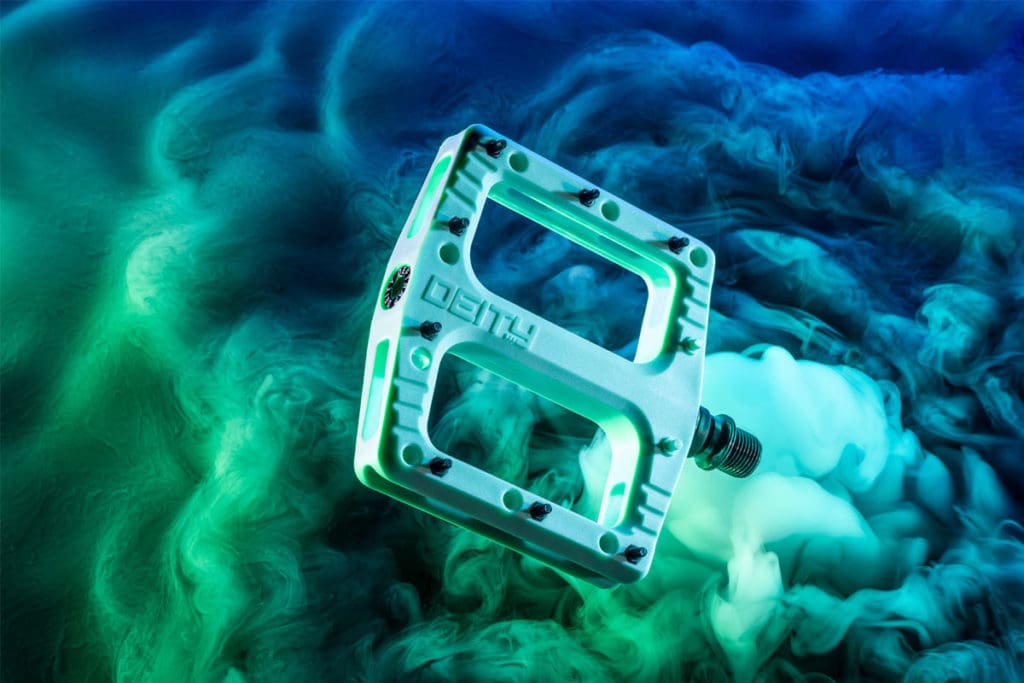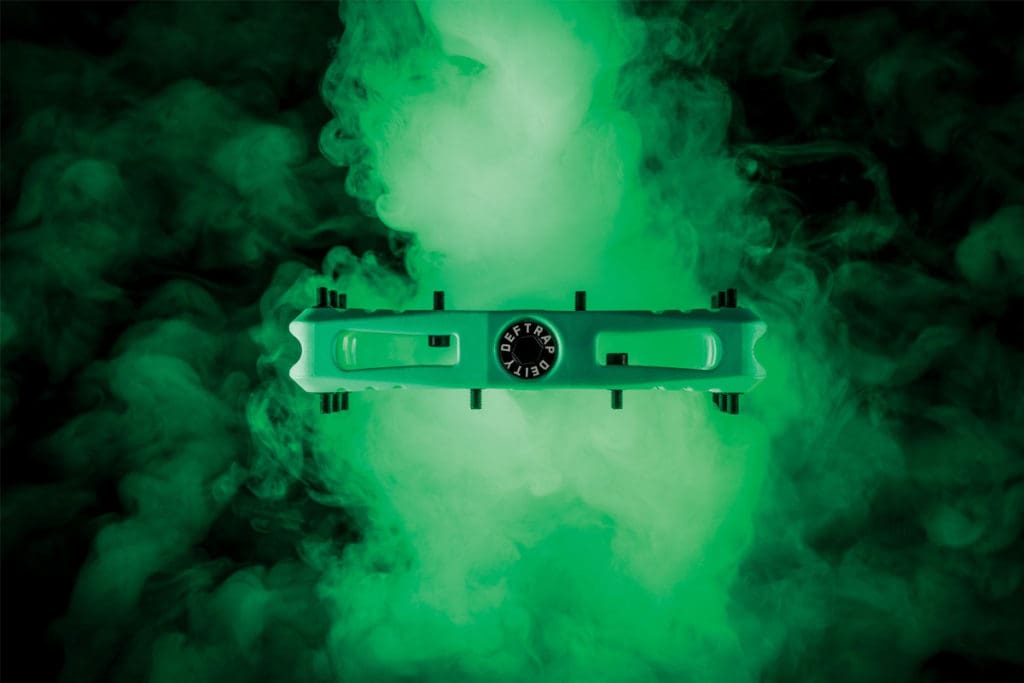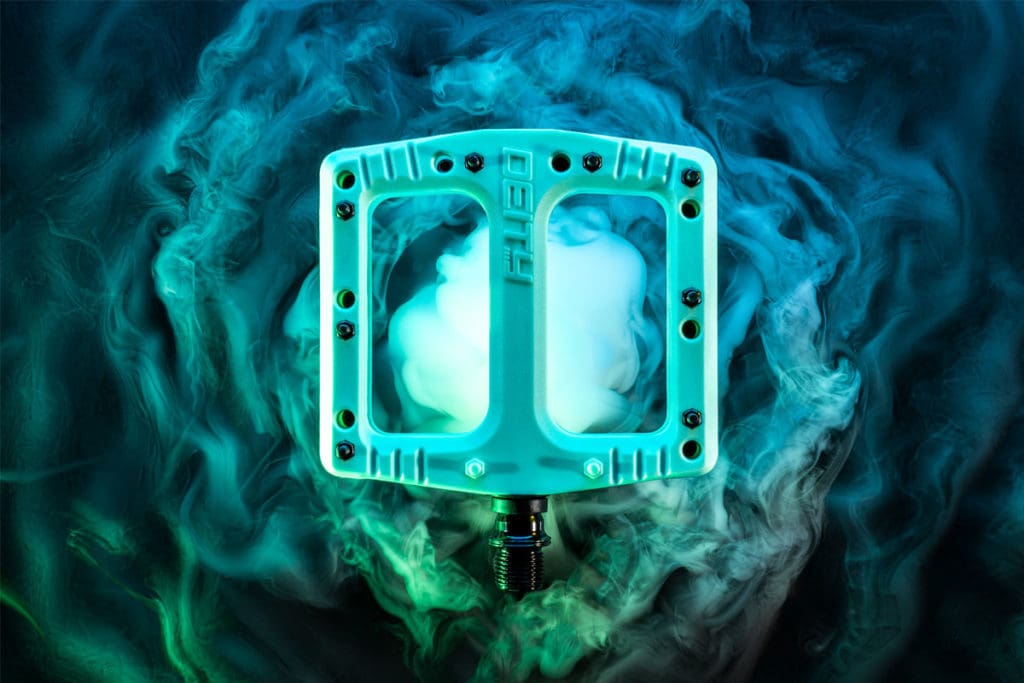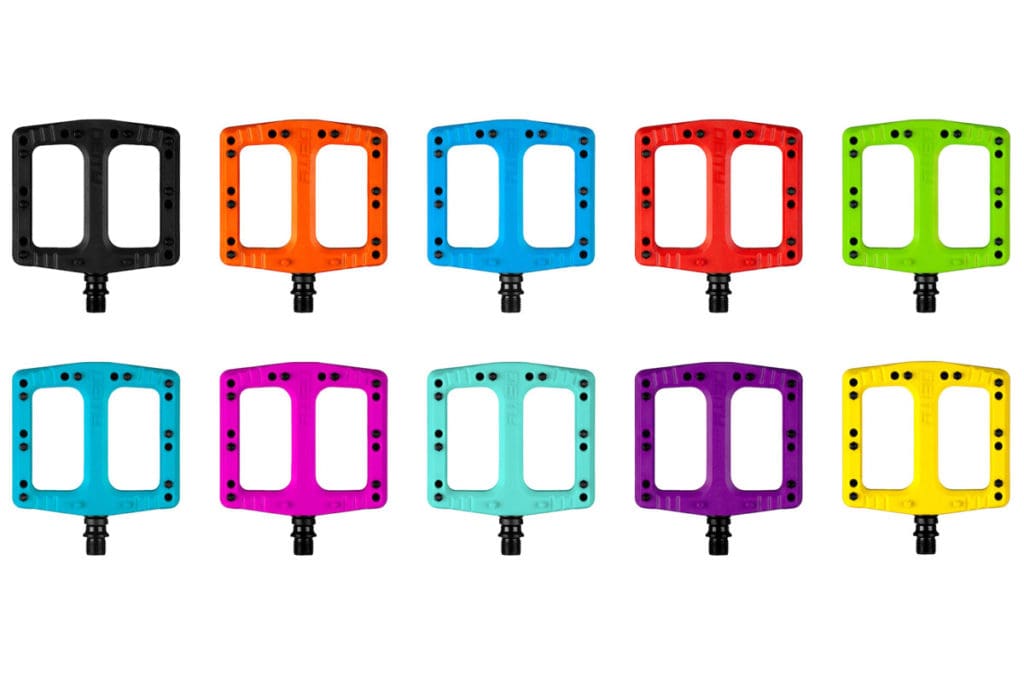Deftrap Captures TMAC Performance in Mid-Price Pedal

– Sponsored Content –
Deity TMAC pedals have long been regarded a pinnacle of mountain bike flat pedals.
However, far fewer people are aware of the similar performance offered by the TMAC’s younger brother, the much more affordable Deftrap.
By incorporating many of the TMAC’s features into a composite pedal, Deity has created a high-performing pedal that sits very comfortably within the mid-price range.
“Deftraps have been around since mid 2020 but haven’t received the level of attention they deserve from riders and the media, at least partly because of supply issues during that time,” according to Lusty Industries national sales and marketing manager Myles Potter.
“I think a lot of people don’t realise how similar the TMAC and Deftrap pedals are, and that they can get a lot of the benefits of high-end TMAC pedals for a lot less price.”

TMAC pedals have been developed over several years in collaboration with their namesake, Red Bull Rampage regular Tyler McCaul.
Deftraps share the TMAC’s deep concave profile to capture the rider’s shoes, as well as the signature non-offset symmetrical platform for increased stability behind the spindle.
They have sealed bearings on either side of the pedal and oversized D bushing to provide high reliability.
Massive Traction
They also inherit the same configuration of 10 pins per side, including eight replaceable pins.
“The traction they offer is massive compared to their rivals, offering reassurance your foot is not going anywhere while you are pedalling,” Myles said.
Common traits between the TMAC and Deftrap also include a wide pedal profile that offers a lot of impact resistance and general durability without packing on weight.
The robust construction of the Deftrap’s pedal body is further boosted by premium nylon glass fibre composite material that is 28% stronger than nylon composites used by most leading brands.

“A lot of composite pedals seem good when they come off the shelf but then you have bearing issues, a lot of movement and eventually you drop or crash the bike and the pedal literally snaps,” he remarked.
Their broad appeal is bolstered by a very large footprint – 113mm long by 103 wide – suitable for a wide range of riders and shoes, and the choice of 10 colours to match the bars and stems that established Deity among the MTB elite.
“Many people upgrade their bikes with Deity bars and stems. The pedals are their third purchase and they’re often looking to colour match with their bars,” Myles explained.
“Many people regard the TMAC as the best flat pedal on the market, and the Deftraps offer all the same benefits but with price of under $100, rather than around $300.
“They’re a more expensive entry-level pedal. However, the Deftrap’s lower price point really broadens Deity’s potential market for people who are looking for long-lasting composite pedals with lots of performance but won’t pay upwards of $280.

“There are a lot of cheaper options out there but you don’t get the same size of pedals, you don’t get replaceable pins and you don’t get the same kind of concavity, which is important to achieve great grip in all riding scenarios.
“For its price point, durability and versatility, the Deftrap is a pedal you could put on nearly any type of bike and be happy. It would be at home on a commuter bike, an e-bike, trail bike or downhill bike. It has all bases covered.
“It’s not a carbon copy of the TMAC but the Deftrap has benefited from all the lessons Deity has learnt.”
For more information, contact Lusty Industries at sales@lustyindustries.com or (02) 49623511.
Lusty Industries can be found in the online YearBook bicycle trade directory.
Should you be listed as a business that deals commercially with the Australian bike trade?
Check out the YearBook online and start a new listing form today.

